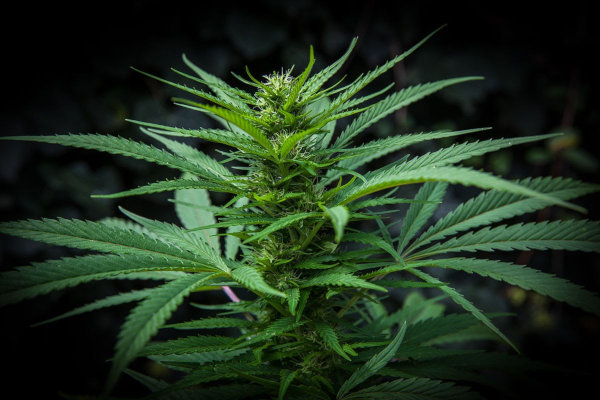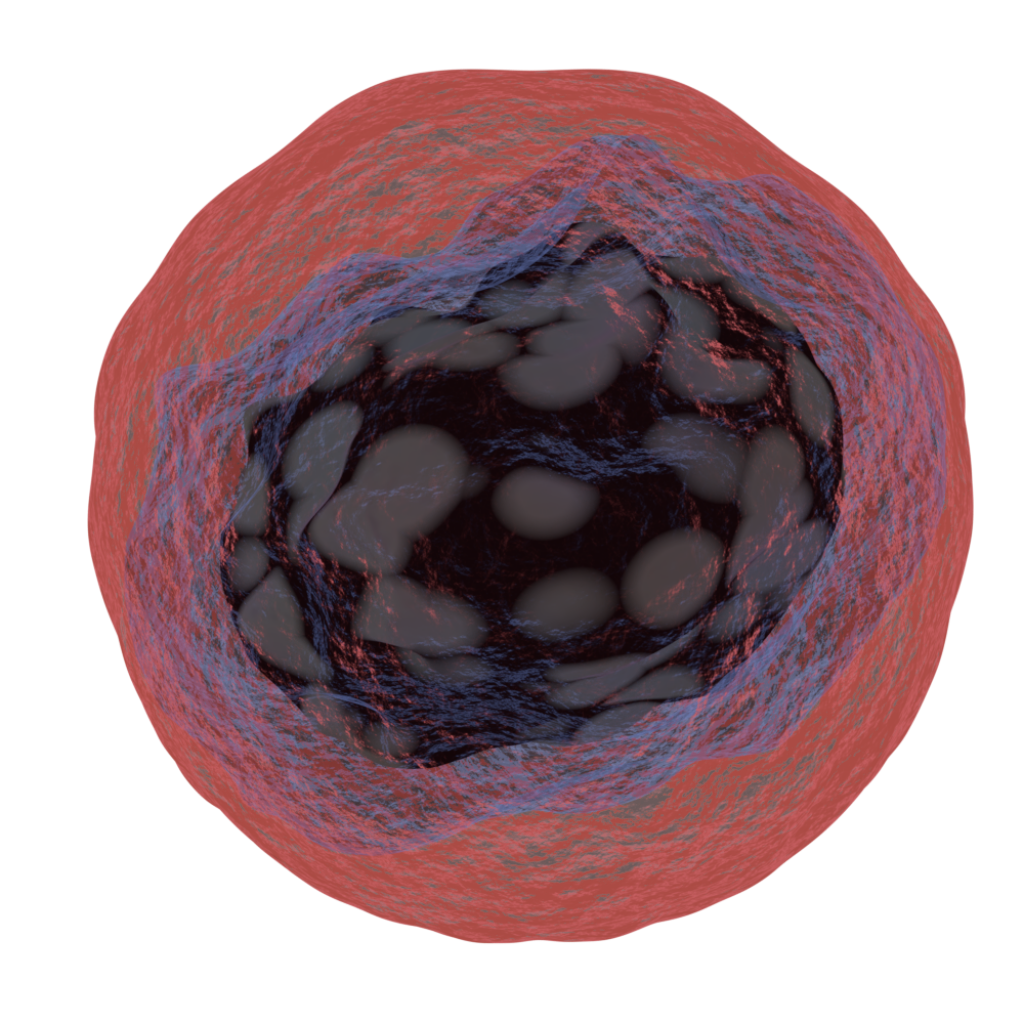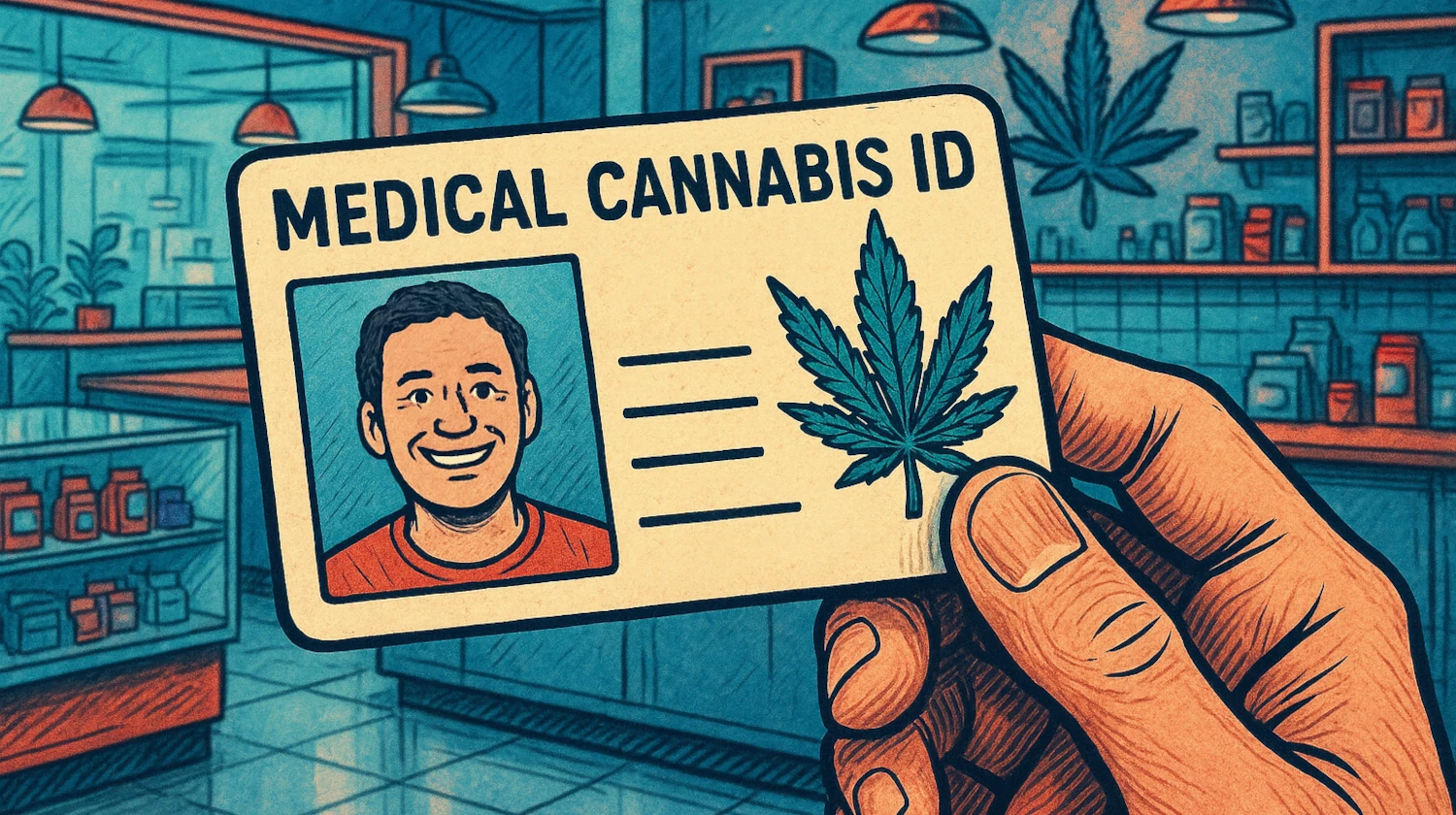DISCLAIMER: THIS WEBSITE DOES NOT PROVIDE MEDICAL ADVICE
The information in this website, including but not limited to images, graphics, text and other materials, is included for informational purposes only. None of the material on this site is intended to substitute for professional medical advice. Always seek advice from your qualified physician or healthcare provider if you have questions before starting any new healthcare regimen, and never disregard professional medical advice based on anything you read on this website or any other website.
The notion that cannabis can be used as an effective treatment for cancer has been at the forefront of the medical marijuana legalization movement. As of 2024, 39 U.S. states and Washington DC have legalized the use of medicinal cannabis for a plethora of health conditions. Many have specific lists of their particular qualifying conditions, and cancer is almost always at the top of that list.
But can cannabis actually be used to treat cancer? Or is it more useful in treating the symptoms and side-effects of other treatments, like nausea caused by chemotherapy?
There have been numerous studies throughout the years, but what have the results shown? Let's find out!
What is Cancer?
Cancer, as defined by the National Cancer Institute, is the term for a collection of similar illnesses, all of which involve the abnormal growth of cells in the body.
Every organ in the body is composed of cells, which naturally divide and grow when old cells need to be replaced. However, these cells can mutate during this division, causing them to divide uncontrollably.
This may cause growths in the body called tumors, which can spread throughout the body, causing other forms of cancer.
Not every form of cancer will cause tumors, however.
Generally speaking, cancer cells are formed following a mutation, which can be caused by environmental or genetic factors. A cancer cell differs from a normal one in that normal cells typically develop a specific type and function once they've matured.
Cancer cells, do not develop into their destined function, and instead ignore the body's natural signal to cease the cell division process, programmed cell death.
Because cancer develops from the mutated cells of the body itself, rather than from an outside pathogen, cancerous tumors can have particularly insidious influences on other cells.
Tumors can manipulate the normal cells of their immediate environment, called the microenvironment, so they can be supplied with blood and continue to grow. Cancer cells are also able to hide from the immune system, allowing them to spread further.
What Causes Cancer?
Cancer is caused by changes in the genetics of cells. Each of our cells has information encoded into its genome that tells it when to start and stop a process of replication and division, referred to as mitosis.
However, when mutations to this genome occur, uncontrollable mitosis can result, leading to cells dividing without end. Tumors develop following the accumulation of these cancer cells, which have the possibility of spreading into other parts of the body.
Several factors can influence the genetic disruptions that cause cancer. There may be a genetic predisposition to cancer that is inherited from parents. However, over 90% of cases are caused by damage to the DNA from environmental factors or lifestyle choices, the most common of which are smoking tobacco, an unhealthy diet, obesity, contracting other infectious diseases, exposure to radiation, and air pollution.
Because cancer has many potential causes, it's nearly impossible to determine exactly what caused a specific form of cancer in a particular patient.
How is Cancer Treated?
Cancer is currently treated in several different ways, depending on the particular form and severity. Usually, a cancer patient may receive several different treatments. The most common forms of treatment are surgery, radiation therapy, chemotherapy, immunotherapy, hormonal therapy, targeted therapy, and palliative care.
Wherever possible, physicians can remove isolated tumors and perform biopsies through surgical methods. Often, however, a form of radiation therapy or chemotherapy is used to treat many forms of cancer.
Radiation therapy involves high doses of ionizing radiation targeted at cancer cells in an attempt to damage its DNA and kill it.
Chemotherapy involves the use of pharmaceutical drugs to kill rapidly dividing cancer cells. A form of chemo called targeted therapy uses drugs that aim at the specific genetic differences between cancer and normal cells to inhibit the growth of these mutated cancer cells.
However, in recent years, significant medical research has been conducted on the potential for medicinal cannabis as a treatment option for cancer. So much so that nearly every state that legalized marijuana for medical use cites cancer as a qualifying condition for their state program. Let's take a closer look.
Which States Allow Cannabis Treatment For Cancer?
As of 2024, 39 states and Washington DC in the U.S. have legalized cannabis for medical use.
Generally speaking, to be eligible for the state program, a patient must have an underlying disease or illness listed on the particular state's list of qualifying conditions. Usually, cancer is at the top of that list.
The states that have cancer as a qualifying condition are Alaska, Arizona, Arkansas, California, Colorado, Connecticut, Delaware, Florida, Georgia, Hawaii, Illinois, Iowa, Louisiana, Massachusetts, Michigan, Minnesota, Mississippi, Missouri, Montana, Nevada, New Hampshire, New Jersey, New Mexico, New York, North Dakota, Ohio, Oregon, Pennsylvania, Rhode Island, Utah, Vermont, Washington, Washington D.C.*, and West Virginia.
Other states have yet to legalize marijuana either for medicinal or recreational purposes. But this is sure to change given the change in the political climate over recent years.
Other states such as Alabama, Maine, Maryland, Oklahoma, South Dakota, and Virginia do not explicitly list cancer as a qualifying condition, but instead have allowed their state-licensed physicians to issue medical marijuana recommendations based on their own discretion or for conditions related to cancer treatment (like weight loss, nausea, chronic pain, and cachexia).
In such states, a medical marijuana doctor would surely issue MMJ recommendations to those patients suffering from cancer.
Current Research About Cannabis and Cancer
The many cannabinoids that are found within marijuana are said to carry medicinal benefits. However, because cannabis is considered a Schedule I substance by the DEA and FDA, researchers could not conduct clinical studies.
Nevertheless, in recent decades the political climate surrounding cannabis has changed dramatically, and as such, research into the medical efficacy of marijuana has since been underway.
Some of the most notable research on medical marijuana and cancer has focused on pain management. Typically, cancer-associated pain is managed in patients using opioid analgesics, which can cause severe side effects in some cases.
As such, cannabis was explored as an alternative to these traditional opioid treatments. Several clinical studies suggest that marijuana can be effective in mitigating cancer-related pain, although not as much as opioids.
Other clinical studies have suggested that cannabis may help chemotherapy patients with their symptoms of nausea and vomiting, two common side effects of chemotherapy drugs.
Two forms of THC, delta-9 and delta-8, demonstrated in clinical studies some efficacy in reducing symptoms of vomiting associated with these chemotherapy drugs. Nevertheless, some studies have found that THC is not particularly effective at doing so, despite being more effective than a placebo in mitigating these symptoms.
Medical marijuana has also been shown to help reduce weight loss and lack of appetite common with many cancer patients.
Depending on the particular form of cancer, many patients experience something called "Cachexia," which is described as a loss in lean body tissue. This is usually treated with drugs that stimulate the appetite of cancer patients.
Marijuana use has long been known to increase feelings of hunger, known colloquially as "the munchies," which has been confirmed by several studies. As such, some research has explored the use of THC as a potential treatment for Cachexia. Clinical studies found that THC did cause slower weight loss and an increased appetite.
Ultimately, a review of medical research regarding marijuana and cancer suggest that medicinal cannabis can be effective in treating some symptoms of cancer, but ultimately underperforms other, more traditional, drugs.
Nevertheless, these studies show that marijuana can treat several different symptoms at once, unlike other conventional drugs, and with fewer adverse side effects.
Are There Risks Associated with Cannabis and Cancer?

Research often shows that cannabis has fewer side effects than traditional drugs, but this doesn't mean that there are no adverse side-effects associated with marijuana use. Some clinical studies found that drowsiness, blurred vision, mental clouding, and sedation were common.
THC is an intoxicating compound that can cause significant changes in mood and mental state.
In some instances, cancer patients treated with marijuana had found the cognitive and mood effects associated with THC intolerable, particularly those who didn't have any prior experience with marijuana. Notably, some studies found that when consumed in large doses, cannabis can cause feelings of intense anxiety, paranoia, or even psychosis, which may be particularly difficult to bear for an already burdened cancer patient.
Some clinical studies have suggested that regular marijuana use may increase the likelihood of anxiety and depression, although a definitive cause hasn't been established.
Smoking marijuana also comes with some risks. Many studies have found that heavily smoking marijuana may lead to decreased lung function and negative respiratory symptoms, although to a much smaller degree than smoking tobacco.
Not only that but, many of these studies vary in the degree to which smoking marijuana decreases lung function.
Nevertheless, other studies have shown that smoking one joint per day does not adversely affect lung function, and in some cases, can even improve lung function.
How Do I Find the Best Cannabis for My Needs?
If you live in one of the aforementioned states with medical marijuana programs, of which cancer is a qualifying condition, you may have decided to take advantage of medicinal cannabis for your condition. So how do you go about finding the best cannabis for your needs?
Well, first and foremost, qualifying patients lucky enough to live in a state that is serviced by NuggMD, can receive their medical marijuana recommendations remotely using our telehealth platform.
NuggMD services patients in 28 states and counting.
At NuggMD, we believe everyone has the right to explore medicinal cannabis for their chronic or underlying illnesses. We're committed to making access to both medical recommendations and access to marijuana products as easy, trustworthy, and reliable as possible.
We take pride in the fact that we're the most reliable, customer-obsessed marijuana company that helps patients around the country get access to the medicine that they need most.
The information in this article and any included images or charts are for educational purposes only. This information is neither a substitute for, nor does it replace, professional legal advice or medical advice, diagnosis, or treatment. If you have any concerns or questions about laws, regulations, or your health, you should always consult with an attorney, physician or other licensed professional.




